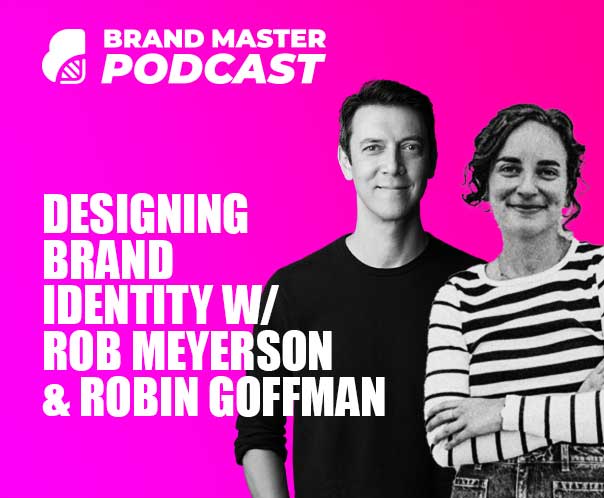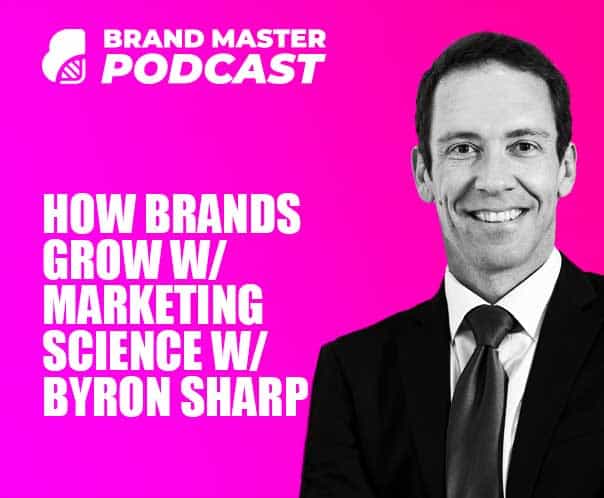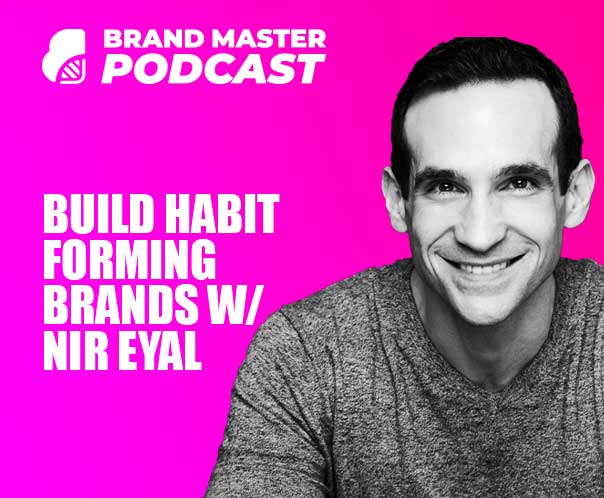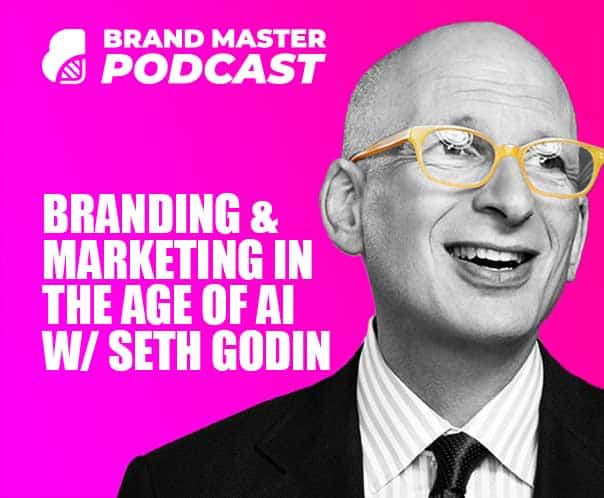In the latest episode of the Brand Master Podcast engages in a captivating conversation with Phyllis Williams-Strawder.
Phyllis Williams-Strawder is known as the "Ghetto Country Brand Mother." Phyllis epitomizes the essence of a personal brand, having successfully transitioned from founding and scaling a barbecue business to a $2 million venture, to now consulting clients in the nuanced world of brand strategy.
Our discussion delves into Phyllis' remarkable journey from her barbecue business roots to becoming an influential figure in brand strategy.
This transformation highlights the importance of robust processes, overcoming the challenges of imposter syndrome, and recognizing one's own value.
For those curious about the intricacies of brand strategy and how to navigate this shift through a blend of processes, trial and error, and a dash of courage, this article is an invaluable resource.
Barbecue to Branding: A Strategic Journey
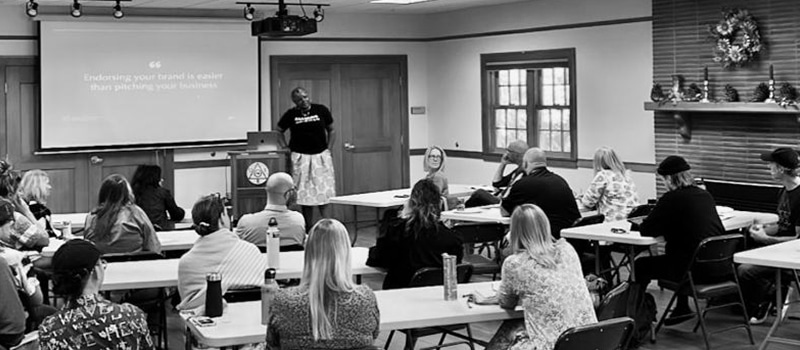
Stephen Houraghan
How did your journey from running a successful barbecue business, with an impressive revenue of $2 million, lead you to the world of branding?
This transition seems particularly intriguing considering that your initial background wasn't in branding.
Could you share insights into how your experience in building and growing a barbecue business has shaped your approach to providing strategic services to clients, and in helping them enhance their personal brands?
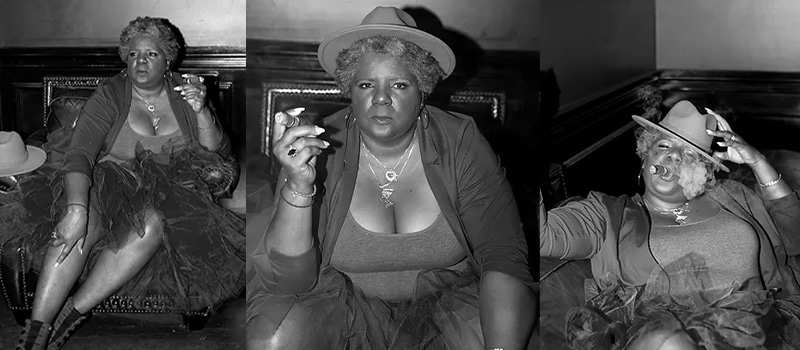
Ghetto Country Brandmother
The journey began unexpectedly in the world of barbecue, driven by the need to support a husband's costly barbecue competition hobby, which was encroaching on the narrator's finances, specifically her shoe budget.
To resolve this, they started selling lunches from their dining room table, a move that led to the business's growth.
Collaboration was key, with every opportunity seen as a chance to progress.
Despite the Phyllis's initial aversion to cooking, her husband's love for it drove their success. They expanded from dining at home to farmers' markets, catering services, and the opening of their first restaurant around 2014 or 2015, followed by a second restaurant, "Big Mr. Morning."
However, as they prepared to open a third restaurant, the narrator had a change of heart and contemplated leaving the restaurant industry.
This led her to explore branding certification, a transition filled with challenges, as she had to step out from her husband's shadow and engage with the public directly.
The shift from barbecue to branding represented a transformative journey. In their barbecue venture, their best-selling item was the meticulously smoked brisket, known for its juiciness, in contrast to common practices.
They also offered a crowd-pleaser called "pig candy," which was thick-sliced maple bacon with cayenne, brown sugar, and a special rub, smoked to perfection.
These culinary creations earned them recognition, but their journey ultimately led to the discovery of branding as a new path.
Phyllis's insecurities in marketing her business and setting her worth led her to embrace branding, which allowed her to focus on the brand itself, making it easier to step into this new chapter of her professional journey.
Phyllis's Unique Path into Brand Strategy
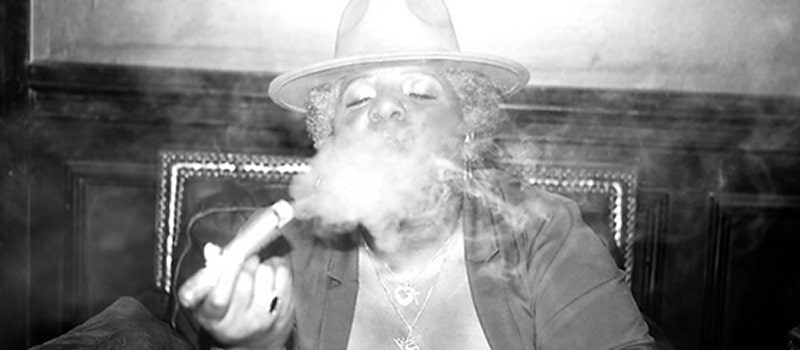
Stephen Houraghan
For those unfamiliar with Phyllis and her distinct personal brand, her colorful language is a defining feature and a badge of honor.
We'll delve into brand personality and personal branding soon, discussing the importance of authenticity and the impact of being genuine rather than putting on a facade.
This approach, which I find particularly resonant, is about giving as much of oneself as possible and how this authenticity can be infectious.
However, many professional brand builders often come from backgrounds in graphic design or copywriting, whereas you entered the field through a different route.
Could you share when you first encountered the term 'brand strategy'? What did it mean to you at that time, and what was your journey like as you explored this concept?
Was it confusing, and what resources did you rely on? I'm also curious to know how this discovery drew you further into the realm of brand strategy.
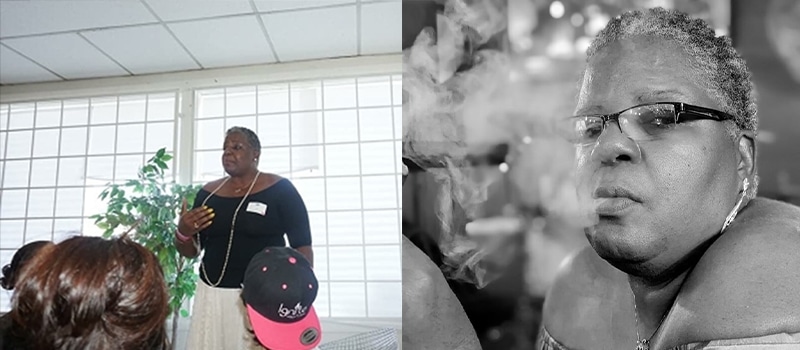
Ghetto Country Brandmother
The journey into understanding strategic branding was initially confusing for me. I had never thought about branding from a strategic perspective – the process of building a reputation step by step.
My curiosity was piqued by a video, possibly by Crystal in the Future, which led me to start researching the topic. I sought out free content and eventually stumbled upon your videos, which I found incredibly insightful.
What set your content apart was the way you provided extensive context and didn't keep your 'secret sauce' hidden, unlike others in the field.
Despite the wealth of information you shared, it became clear that knowing the theory wasn't enough; we needed guidance on how to implement these strategies, which is why I invested in your courses.
It was a revelation to realize that our multi-million dollar food business could have earned millions more with a strategic brand approach.
I took your course first, followed by Marty Neumeier's, but I always found myself returning to Brand Master Academy. I explored other sources like Melinda's content, but your academy consistently offered the most comprehensive understanding of strategic branding.
This journey wasn't just about learning; it was about application and personal growth.
I learned the importance of not taking personal branding personally and the distinction between being the face of my business and maintaining my personal identity. Your courses helped me navigate an identity crisis I faced earlier in my career, where I felt lost without my professional persona.
Now, I understand the value of strategic personal branding – it's more than just being the business owner; it involves a deeper, more thoughtful approach.
Without your content and the courses I took, I wouldn't have grasped the essence of personal branding. I would have continued focusing solely on business branding, which many already do. But there's a need for strategic personal branding, which involves more than just showing up as the owner.
It requires understanding and intentional strategy to effectively represent oneself and one's business.
PRO Brand Strategy BluePrint
Build Brands Like A Pro Brand Strategist
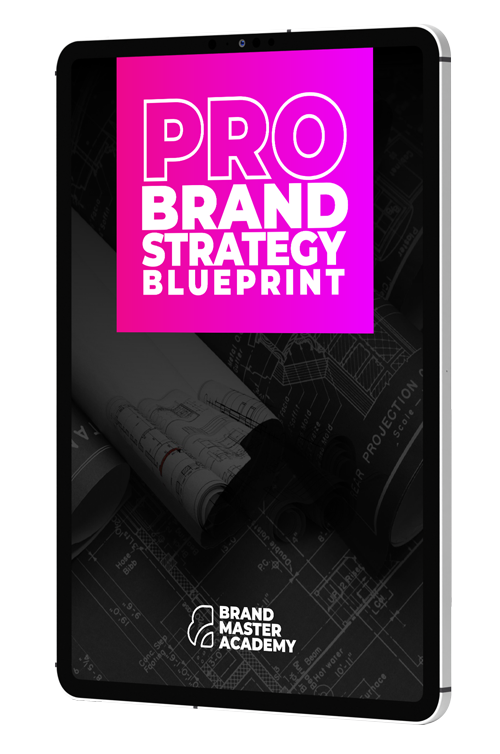
The 'Ghetto Country Brand Mother': A Unique Branding Philosophy
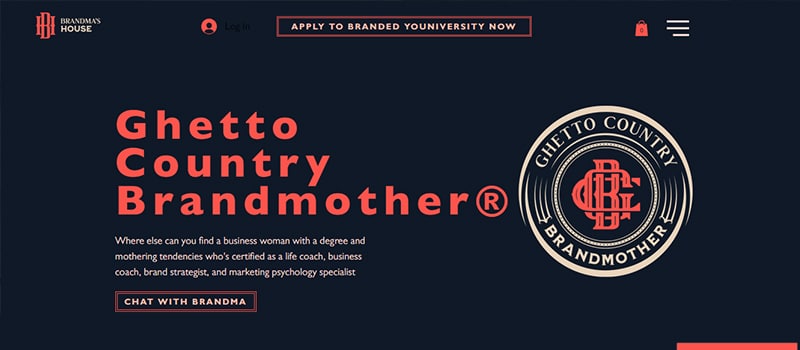
Stephen Houraghan
In our conversation today, we're delving into the impact of effective branding and positioning strategies, particularly through the lens of your unique approach, Phyllis.
It's incredibly rewarding to witness individuals who have participated in our programs successfully apply the principles we teach, especially the fundamentals of branding.
This involves differentiating oneself in the market and providing compelling reasons for the audience to choose their brand over others.
Your brand, Phyllis, is a prime example of this in action. Your presence and distinct approach on platforms like LinkedIn and other social media are notable.
You stand out not just for being active but for the unique angle and philosophy you bring to discussions about branding.
This distinctiveness has solidified your position in the market, making you much more than just another brand strategist. The term "ghetto country brand mother" comes to mind when I think of your brand.
Could you share with us more about this identity as the 'ghetto country brand mother'?
I'm particularly interested in your philosophy regarding personal branding and brand personality.
Your choice of language, tone, and delivery style are key elements of your brand. How did you decide to position yourself in this unique way, and was it a challenging decision to fully commit to this distinctive branding approach?
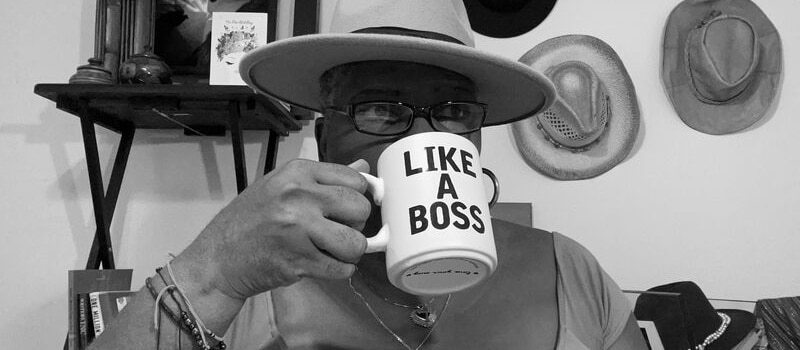
Ghetto Country Brandmother
Embracing the "ghetto country" aspect of my identity was a significant journey for me.
It's a reflection of my upbringing and a way of life that I wholeheartedly embrace.
I remember the first time I publicly acknowledged it was on Clubhouse. I decided to proudly declare, "I'm getting a country," explaining that I was raised by a country mama with strong values.
This declaration didn't come without challenges, as I had insecurities about the way I speak. I worried about being perceived as unintelligent or ignorant due to my unique speech pattern.
However, I soon realized that owning this part of my identity was empowering. It allowed me to take away the potential for others to use it against me. My philosophy behind it is about encouraging people to embrace their authenticity. As I often say, "You are not your brand."
We all have different facets to our personalities, and it's essential to bring out the aspects that align with our personal brand effectively.
It's not about revealing every detail of our lives but selecting the parts that resonate with our audience and can contribute to our brand's success.
When it comes to valuing our work, I've learned to detach it from my personal worth. Instead, I focus on the value I provide through my services. This shift in mindset allowed me to confidently set fair prices for my work, even after taking courses that helped me recognize the value I bring.
It's about being genuine and keeping it real, without oversharing personal details.
Ultimately, it's a reminder that we all have valuable aspects within us that can be harnessed to create successful personal brands while respecting our boundaries and mental well-being.
Explore Brand Strategy
Programs & Tools
Balancing Vulnerability in Branding

Stephen Houraghan
I'm intrigued by your discussion of vulnerability and authenticity in personal branding. You've touched on the idea that being more vulnerable can make you more likable, but there's a fine balance to strike.
I appreciate your philosophy of authenticity and the notion that different people perceive us in varying degrees of authenticity.
How do you recommend finding that balance and deciding what level of authenticity to share with different audiences?
It's clear that personal branding involves more than just being yourself; it requires a deep understanding of your audience and what you want to convey to them.
I'm also interested in your journey to overcome insecurities, especially in terms of gaining the confidence to charge what you believe you're worth. Imposter syndrome is something many people, even the most successful, grapple with.
Could you share what helped you build the confidence you now have in your personal brand and pricing strategy?

Ghetto Country Brandmother
The journey of self-discovery in personal branding often involves unexpected challenges and valuable lessons.
It's not always about confidence but rather the courage to step into uncharted territory.
One particular experience stands out—a client paid a significant amount for a personalized strategy, yet the outcome was not what was expected. The client initially connected on a certain vibe, seeking to emulate a specific persona, but in doing so, they lost sight of their true self.
This experience highlighted the importance of truly understanding the individual behind the brand, a realization that pushed the speaker toward a more holistic approach to personal branding.
As a certified life and business coach, the speaker recognized the need to delve deeper into their clients' aspirations, encompassing not only their brand but also their life goals. This transformative journey was catalyzed by the initial client interaction, which, despite its challenges, became a stepping stone towards a more profound understanding of personal branding.
It emphasizes that while people may think they know what they want, they often struggle with asking themselves the hard questions, ultimately adopting personas that don't align with their authentic selves.
Evolving Rates and Growing Confidence

Stephen Houraghan
How did you build the confidence to increase your rates in brand strategy and services, especially when transitioning from a different field like design to copywriting?
It seems like you started with courage, initially charging higher amounts and then learning to address problems differently.
Can you share your experience in gradually raising your rates while delivering value and building expertise over time?
Additionally, I'm curious about what upcoming projects or developments you have in store for your current work in the realm of brand strategy and content creation.

Ghetto Country Brandmother
Expanding on future plans, the goal is to extend the reach of Grandma's House and license out the brand-building process.
It's a recognition that not everyone requires a "brand mother"; there's a need for a diverse range of brand parents, from soccer moms to pal dads.
The focus here is on being a nurturing brand parent, offering strategic guidance with empathy rather than just handing out solutions and sending clients into the world to fend for themselves.
The intention is to license this process to foster a more empathetic approach, allowing people to cultivate cultures they genuinely want to be part of, rather than simply building businesses.
Having experienced the intricacies of running a business, including managing employees and dealing with taxes, the emphasis now is on maintaining integrity, both professionally and personally. The concern is that many entrepreneurs become disillusioned by their own businesses when they turn them into jobs solely driven by the bottom line.
Instead, the vision is to build a brand culture, starting with personal branding, to attract the right people as both clients and team members.
The aim is to create a system where hiring is not solely based on skill but also on how well individuals align with the culture being cultivated. This approach seeks to alleviate the fear associated with hiring and ensure that every hire is the right fit, not just in terms of expertise but also in fitting seamlessly into the brand culture being crafted.
The ultimate goal is to make this process so effective that it can be licensed out to create a variety of brand parents.
On-Demand Digital Program
Brand Master Secrets
Make the transition from hired-gun to highly valued brand strategist in less than 30 days. The systems, frameworks and tools inside this comprehensive program are all you need to level up.







